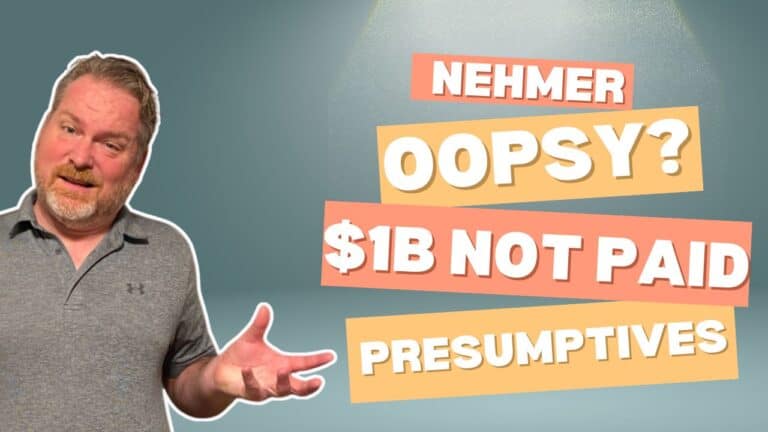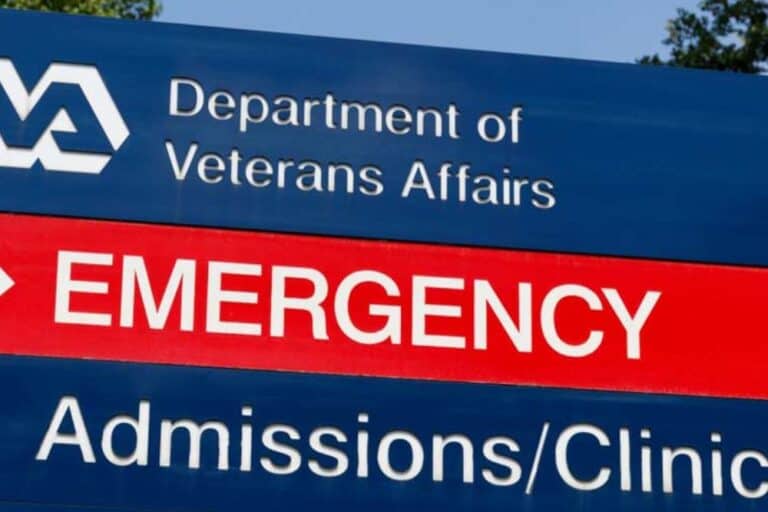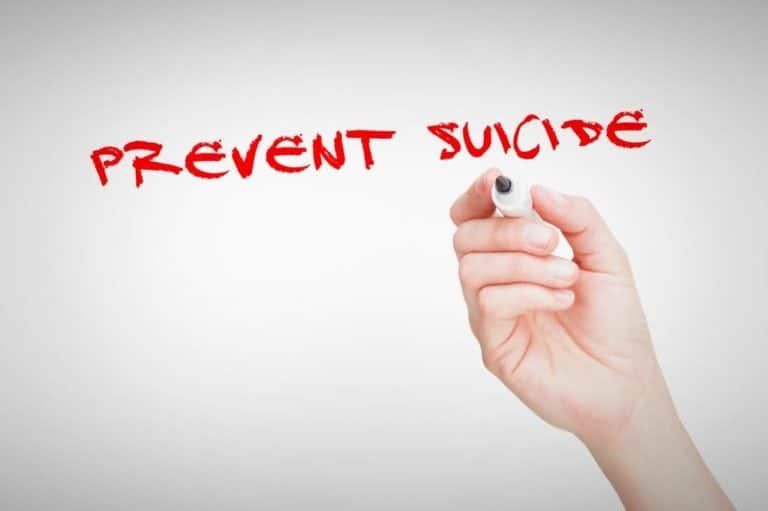Breaking the Silence: How Community Care Is Failing Veterans
A recent report from Military.com shed light on a critical issue: disabled veterans struggling with mental health conditions are experiencing lower satisfaction rates with Community Care than their peers.
While the Veterans Community Care Program was designed to offer expanded access and “Choice,” many of the implementation kinks are leaving our most vulnerable veterans — those battling PTSD, anxiety, depression, and other invisible wounds — feeling underserved.
But before we dismiss the program outright, let’s pause. The issue here may not be Choice itself, but rather how it’s being executed.
The Data Tells The Story
In a VA study involving more than 231,000 veterans, those with diagnosed mental health conditions consistently reported lower satisfaction in key areas — clinician communication, ease of scheduling, billing clarity, and overall quality of care — when compared to those without such diagnoses.
While general satisfaction with community providers has increased since 2016, this particular gap has remained steady, raising real concerns about systemic cracks in the process.
Implementation Is the Issue — Not the Idea
It’s tempting to blame community care outright, but doing so misses the bigger picture. Many veterans advocate for healthcare choice precisely because it increases accessibility and holds systems accountable. However, the real challenge lies in execution:
- Inconsistent mental health training among community providers can lead to misdiagnosis or insufficient support.
- Breakdowns in care coordination between the VA and community clinics often mean duplicate tests, missed referrals, or lapses in follow-up.
- Confusion about coverage under the MISSION Act leads to frustration and surprise bills.
- Minority veterans report even lower satisfaction, hinting at deeper systemic inequities that must be addressed.
“It’s clearly a call to improve care coordination across the board so that veterans can get the medical care they need,” ~ Dr. Eric Roberts, University of Pennsylvania
What the VA Is Doing Right
Despite the challenges, many veterans still report higher satisfaction with traditional VA care, particularly when it comes to mental health services. Veterans often note better access to trained psychiatric professionals, integrated treatment teams, and a clearer understanding of benefits and services.
This isn’t about pitting VA care against community providers — it’s about ensuring both systems are held to the same high standards.
What Disabled Veterans Can Do Right Now
- Speak up:
Fill out VA and provider satisfaction surveys. Your feedback is a force for change.
- Connect with a VSO:
They can advocate for you and streamline issues with both VA and community providers.
- Request trauma-informed care:
Ask for referrals to programs like Cohen Veterans Network or Warrior Care Network for specialized support.
- Back better policy:
Support legislation that improves training, oversight, and funding for mental health services in both VA and community settings.
Final Thoughts …
The MISSION Act was born out of good intentions — expanding care access and empowering veterans with choice. That choice remains vital, but choice only matters when paired with quality.
For disabled veterans with mental health needs, the system isn’t broken beyond repair — but it is calling out for urgent adjustment. Let’s stop patching the holes and start rebuilding trust with smarter, more veteran-focused solutions.
Until every provider — VA or community-based — delivers trauma-informed, coordinated, and transparent care, the mission isn’t complete.
🔗 Sources & Further Reading:





The VA has only started paying CC providers a fair amount and paying in a reasonable time frame (from every 6 mths down to w/in 6 weeks) in the last 2 years. The paperwork is still ridiculous and “hoops” like renewing every 6 mths when the treatment is long term are a turn off for the low reimbursement rate. Good providers burned a decade ago are not coming back, unfortunately. My current provider has told me that she keeps encouraging them but they are not short enough of clients to make the hassle worth it.
I’m not using mental health services anymore because the VA wasn’t helpful (especially their drugs). EMDR through Boulder Crest Foundation saved my life and those of my friends. I highly recommend avoiding the VA and going to this group or the ones mentioned in the post for trauma health care. Hopefully “social worker” is reading this.
What is NEVER discussed by anyone is the fact that the VHA is a research facility as well as supposed healthcare. Veterans are guinea pigs for collecting blood and other samples for research. The VA has produced a lot of great, beneficial data and products over the years and does provide new Drs residency opportunities not available in the public/private sector due to numbers needing training. That’s the good side.
The bad side is they aren’t providing high quality healthcare to veterans.Because they aren’t paying the Drs as much as they’d make in private practice, too many of the great Drs leave and we are stuck with the Drs (on rotation from state to state as complaints file in) who can’t make in the private sector. The VHA obviously has no screening program for Drs before they hire them, except that they aren’t barred in the State the VA facility is in. They also don’t discipline Drs for mistakes, they just let them go somewhere else. (Fact. A Dr that made a serious mistake in my care left the State after I filed a malpractice claim. She is went to another VA clinic and from the few reviews left online, didn’t do a lot better with the veterans there either.)
I feel really badly for the veterans under age 65 that can’t get Medicare. Once I got Medicare my life got so much better. I chose my own Dr who is competent, knowledgable and listens. Something I have rarely found at the VA. I can see specialists when needed, instead of being repeatedly denied by VA, which is why my health is severely impacted now.
My suggestion to everyone here is do your own DR research online for both physical and mental healthcare! Read reviews online, Google Dr reviews and check several sites. I’ve found them pretty accurate. Use CC and if you don’t like a DR, just keep asking for a new one. Call the DRs offices and ask if they accept Choice and see veterans. Ask other veterans in your area who they see or ask for referrals online. Once you find a new DR, interview them! Ask them questions and then listen carefully to answers. Trust your gut. If you don’t walk out of the office thinking this Dr is helping, start looking for a new DR! I walked out in the middle of an appt one DR was so bad. I have also gone to specialists who blew me off because my issue wasn’t something they wan’t to be bothered with. (Common complaint now, lazy Drs). But please don’t give up. There is help out there. And if you have PTSD look for a certified EMDR therapist. It will change you life for the better!
They hire social workers instead of pay for much needed treatments. I’ll never see one of them ever again.
New X handle @VHA_Eliminate … eliminate VHA. This deplorable wreck of a system has killed thousands yet people still line up to become part of that bad theatre performance. People line up to get jobs there too because of continued upwards transfer of wealth… and the false belief that this system has not already failed.
The simple truth is the VA has a very small circle of community care providers that are “in network.” I’ve seen in-network community care providers lists so small you can count the names on one hand and other lists where half the providers work for the VA part time making “community care” a farce like much of the VA.
Also, the VA can just deny the treatment plan or refuse to pay for it making community care nice sounding but ultimately not what it’s cracked up to be. More plausible denability if you ask me. Now they can blame “community care”.
@Joe Blow That’s true… and who knows how they chose those providers. I know more than a few outside professionals, the really good ones, won’t do business with the VA for obvious reasons. And the people at the VA will even get pissed off if you leave and see someone else. It’s never their fault and it’s always you pulling something on them to get away from the system for no good reason. I wouldn’t like to see an outside provider who would simply report everything to VA. What would be the point in that?
It’s always some bullshit or some scandal with the VA and you people know it. People have suffered and even died because of the malfeasance and Incompetence there over the last decade. Where is remedy for the victims? Ok then…get rid of it. Justice number one priority.
If the VA won’t pay for something, they’ll simply gaslight you or run you around in circles like a fool which is immoral and unethical. And many are too stupid or mentally messed up to understand they’re getting fked. Just wait until more and more outside doctors catch a glimpse of the malfeasance and denial of care that has historically been such a big part of the VHA. Then VA yanks the money rug and you end up having to go back to VA or go without healthcare.
My ass. People have no idea how often they fuck people in there until they go there or start working there. then all of a sudden money starts flowing and people get amnesia. Start to accept the unacceptable. We need choices and FULL HEALTHCARE! The VA is NOT FULL HEALTHCARE!!!
Braking the silence …on the whack a mole wait time scandals that get swept under the rug constantly, the bogus personality disorder accusation schemes to defraud veterans of healthcare and benefits, the zero pain medication ever, the denial of care for service connected musculoskeletal conditions, the turning people into vegetables with ECT and 20 drug cocktails…all of this protected activity apparently. All of this and more bound to continue for the rest of American history.
Where else can people right out of college gain some sort of validity and make more than minimum wage cutting their teeth on someone’s ass? What happens when they get in there and start complaining about not wanting to treat someone, then where do the veterans go? In the past it’s been the community and they had to pay for it to get away from some asshole who denies care. VA keeps them around…so community care is unfortunately necessary because of that. These people who talk about community care like it’s a bad thing have an unrealistic view of the VA.
Bullshit man. You’ll find the best providers with the most experience OUTSIDE VA. If community care isn’t working for some reason, rest assured VA is sabotaging the program somehow.. whether not paying the bills or only allowing people to see just the sort of people who cause problems for veterans at VA. Easy to fuck up a community care program and then feed off of veteran dissatisfaction.
This is propaganda. I’ve been outside VA for mental health and paid out of pocket. It was quicker, more personal, the people more trustworthy, not intrusive and angry, no games, no character assassination, no denial of care, no incompetence.
To Benjamin Krause,
Hello, my name is Emma. I am a Master’s student in social work, with a focus on the military population. I found the article “Breaking the Silence: How Community Care Is Failing Veterans” particularly impactful due to both my academic background and my professional experience working in Community Mental Health. The article brought attention to two major issues: veterans being failed once again by the very system meant to support them, and the severe lack of resources within community care programs.
Veterans—especially those struggling with traumatic brain injuries (TBIs) and post-traumatic stress disorder (PTSD)—are being pushed into an already overwhelmed community care system. This system lacks an adequate number of mental health professionals trained in trauma-informed care, which is essential for assisting the veteran population. It feels as though the VA, tired of facing public criticism for its lack of resources, has shifted the bulk of the responsibilities to community care systems that are already stretched thin.
Although the expansion to community care may have been driven by good intentions, the result leaves thousands of veterans without the consistent, specialized treatment they need and deserve from serving our country. If we are truly committed to honoring their service, we must invest in properly training mental health providers, increasing funding community care providers and holding the VA accountable for ensuring continuity of care—not shifting the problem. Our veterans deserve better than being lost in another broken system.
Thank you for your insight,
Emma S.
The University of Georgia, School of Social Work
I’ve seen so called psychologists from UGA up there at the Athens VA practicing unethical psychology and bullying veterans so… you’re just shilling for a bad system. The psychologists in Athens, outside VA, were much nicer and more respectful people who ended up at VA. The political and other biases at VA were appalling. Need an insurance program so we can go anywhere. Seen private care for other medical conditions that the VA wouldn’t treat property too. Private doctors much more courteous, attentive, and honest. VA is a wreck… has been for decades. I’ve seen it all.
👆No conflict of interest there…”social worker.” You should see what your colleagues in psychology do there at VA. It’s not always pretty. You’re gonna learn that the best thing the VA has going for vets is cash payments and otherwise LEAVE PEOPLE THE FUCK ALONE! You people fuck shit up and turn on us!!!